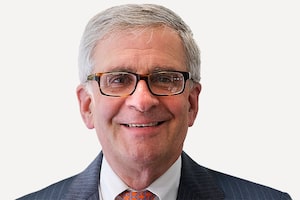Protesters march in front of police headquarters on Jan. 28, in Memphis, Tenn., over the death of Tyre Nichols, who died after being beaten by Memphis police.Gerald Herbert/The Associated Press
Say his name, and remember his name: Tyre Nichols.
The harrowing episode involving Mr. Nichols – the incident in Memphis, Tenn., that horrified people in the United States and around the world – is the familiar, tragic episode: the brutal and fatal pummelling of a Black man by police officers.
On the surface, the circumstances involving the beatings of Mr. Nichols in 2023 and George Floyd Jr. in 2020 – the relentless, senseless and remorseless battering of a Black crime suspect on a U.S. street – are similar. And yet, they are vastly different.
The similarity: the deaths of Black men at the hands of police officers. The difference: The pursuers, attackers and assailants in the uniforms of law-enforcement personnel were themselves Black.
But this much is identical to prior occurrences of police violence against Black people: The video clips display of violence by the five officers who were charged with second-degree murder – and whose actions were shared across television and social media – already has spawned public disgust, street protests and deep introspection.
U.S. President Joe Biden called the beating, which persisted for nearly three minutes, another reminder “of the profound fear and trauma, the pain, and the exhaustion that Black and Brown Americans experience every single day.”
This incident – the kicking of a man who did not resist officers, the application of pepper spray, the beating with a baton – confirms public assumptions even as it negates them. It fits a narrative but contradicts it. But it underlines the complexity of modern police issues even as it illuminates important conclusions about contemporary American life that are ugly, unsettling … and unavoidable.
Why U.S. media made the near-universal decision to show the Tyre Nichols video
One is that Black men are unusually vulnerable to police brutality. Another is that police brutality is not an isolated phenomenon. A third is that Black police officers, even those in a police department headed by a Black woman known as a law-enforcement reformer, are not immune to expressions of lethal excess. Yet one more is that the crisis in U.S. police departments is not only racial. It is cultural as well.
“This does not add up to what we sometimes think is ‘the problem’ with police,” said David Harris, a University of Pittsburgh law school professor regarded as perhaps the leading American expert on police behaviour and procedures. “These guys have been on the force for a while. The important thing is that none of them stepped up and said: ‘No. Stop.’ The organization – the culture – has permitted this kind of officer to stay inside and thrive.”
Prof. Harris believes the death of Mr. Nichols – followed by Memphis Police disbanding its Street Crimes Operation to Restore Peace in Our Neighborhoods, known as the “Scorpion” unit – is not an incident to be dismissed as the excesses of a few bad apples. “This is about how officers see themselves in relation to the people they come in contact with,” he said. “If you see yourself as a warrior – a warrior against crime – this is the result. It is not poor policy or poor police training. It is a result of people thinking that they are in a war.”
The brutal, deadly beating of Mr. Floyd three years ago was a transformative event in U.S. politics and culture, and the ripples from his death in Minneapolis reached across the border into Canada and across the globe.
It prompted searing questions about the role of race in everyday American life that led to a massive racial reckoning in the country; deep introspection in law-enforcement circles that led to a profound re-evaluation of police procedures; calls to “defund” the police; demonstrations that in some cases broke into violence; and a countermovement, largely in conservative circles, that argued the upheaval in U.S. streets had moral and political equivalents among leftists and anarchists.
It is impossible to overstate the impact the Floyd beating had on the United States.
About half of Americans (48 per cent) expressed concern about race relations in the Gallup organization’s first poll after the death of Mr. Floyd. A study by a group of Stanford University psychologists published in the Proceedings of the National Academy of Sciences found an “unprecedented level of anger and sadness in the population, particularly among Black Americans,” and that, compared with whites, Black people reported “significantly larger increases in depression and anxiety symptoms after Floyd’s death.”
A separate study by Valerie Wirtschafter, a senior data analyst in the Artificial Intelligence and Emerging Technologies Initiative at the Brookings Institution, found that “the outpouring of online support for #BlackLivesMatter following Floyd’s killing resulted in a lasting shift and a more vocal and engaged online public, with no evidence of hashtag co-optation by more conservative users” in the year after the beating.
Now, with the Memphis incident, Americans are confronting the cumulative effect of all these factors.
“Each of these incidents is a wave and they build upon each other, but George Floyd and perhaps now Tyre Nichols are taking us into tsunami territory,” said Christopher Edley, former dean of the University of California, Berkeley, school of law and the founder of the Harvard Civil Rights Project. “Everything else in our politics goes to the wayside, at least in progressive communities. We have had literally decades of efforts in criminal justice to combat these sorts of things, but, still, these incidents tear at your heart.”
Mr. Edley argues that the result of these incidents may be the gathering of a sentiment that is not anti-white police officer but anti-bad police officer. “This shows,” he said, “that skin colour neither infects hate nor immunizes against the power of hate.”
 David Shribman
David Shribman